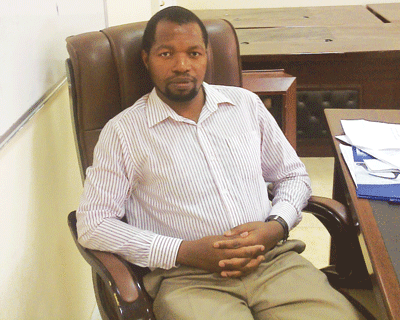
SAUDI ARABIA-based Zimbabwean prolific writer, Ndaba Sibanda, is set to release a book titled Free Fall.
ROBERTO NDOLWANE OWN CORRRESPONDENT
According to Sibanda, the book is composed of short stories that feature local, regional and international writers who have contributed to the compilation of the book.
In an interview with Southern Eye lifestyle, the book writer said he was happy with the book as it covers a wide range of themes that are educational to society.
“Our new book is titled Free Fall. Through it we celebrate and showcase diversity and dexterity. I think it’s a wonderful offering. It covers a diversity of themes like love, hope, mistrust, elements of nature, brutality, feminism and neo-colonialism tackled by different talented contributors from different countries like South Africa, Malawi, Norway, Nigeria, the United States and Zimbabwe. The US-published book will be coming out soon,” he explained.
Sibanda, an international English Second Language (ESL) instructor and lecturer, believes he has made some “impact” on the international writing scene as magazine and book editors and publishers do not only follow him on the social networking sites, but they also periodically invite him to contribute to their publications.

In 2005 he authored an epic, Love O’clock. Of Love O’clock, he says his writer friend, Pentecost Mate has always encouraged him to breathe a new lease of life into the book because he believes “it has an international appeal”.
“Mate has been an inspiration in my life. He motivated me into making the book Love’O clock successful.
- Chamisa under fire over US$120K donation
- Mavhunga puts DeMbare into Chibuku quarterfinals
- Pension funds bet on Cabora Bassa oilfields
- Councils defy govt fire tender directive
Keep Reading
“ I’m hopeful that some of my upcoming works will be a success in the industry,” he said.
In 2006, as a member of a literary association called Writers Get Together (WGT), they came up with an anthology titled It’s Time.
Of WGT he explains: “Our group of writers has since grown and assumed an international dimension in terms of composition and thrust”.
Ndaba, a former Nama nominee has since contributed to more than twelve published books including such international anthologies as Poems For Haiti, A South African anthology, Snippets, Voices Of Peace, Black Communion, Ripples of Love, Lost Coast Review, Summer 2014: Vol 5, No 3, On the Rusk Issue Three (Volume 3), Emanations: Foray into Forever( 2014), Falling Star Magazine (2014), World Peace 2014) (Volume 1), Metaphor: Modern and Contemporary Poetry (Volume 1), East Coast Literary Review: Spring Edition 2014 and Eccentric Press Poetry Anthology (Volume I): Omni Diuersitas.
Sibanda’s poems, essays and short stories have appeared in various journals and magazines like: The Piker Press, Bricolage, The Dying Goose, Lost Coast Review, Magazine, Whispering Prairie Press, Saraba Magazine, Jungle Jim, Outside In Literary & Travel Magazine ,The Metric, Unlikely Stories, Santa Fe Writers Project – SFWP Journal, Elohi Gadugi – Elohi Gadugi Journal, The Subterranean Quarterly, Miracle, The Joker, Florida Flash, Fjords Review, Annapurna Magazine, Festival of Language, quiet Shorts, The African Street Writer, Poetry Potion.com, Books Live , Whispers, and Poetrysoup. His latest anthology, The Dead Must Be Sobbing was published in the US in March 2013.
Sibanda’s debut novel, Time Bomb has been accepted for publication in the UK.
The Piker Press, where he is a frequent and respected contributor, describes Sibanda as the “prophet of liberation”.
Of his lecturing career, he says: “l am grateful to God for having given me the wonderful opportunity to explore the world and interact and communicate with colleagues and students from diverse backgrounds and of different ages and abilities.
“l have taught students from countries such as Egypt, Sudan, Nigeria, Kenya, Uganda, India, South Africa, Afghanistan, Syria, The Philippines, Jordan, Yemen, the Democratic Republic of Congo, Saudi Arabia, Malawi, Mozambique and Zimbabwe.”










